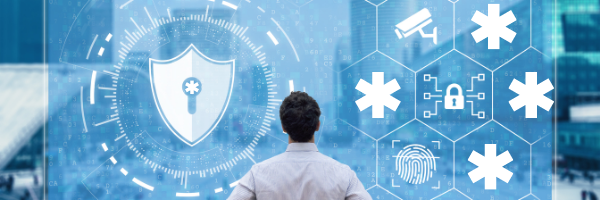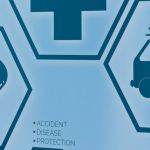The Biden Administration has issued a list of expiring programs and items that they would like to see or have no objection to being, extended as part of the FY2023 Continuing Resolution. The list includes “Medicare add-on payments for ground ambulance services”. The list also includes a “Suspension of Medicare Sequestration” on which the AAA has been advocating. Congress will need to pass a CR by September 30 to avoid a partial government shutdown.
No determination has been made by congressional decision-makers as to when Congress will address Medicare extenders that expire at the end of the year but most key congressional staff believe extenders will be addressed after the election. Even if extenders are not included in the CR, the list demonstrates the overall support and/or recognition of the Administration for the listed programs and items including the Medicare ambulance add-on payments and suspension of sequestration.
Authorization Issues
Note: The following list is provided for your information. In the event that authorizing
legislation is not enacted in a timely manner, these items will allow either for the
continuation of programs that will be funded in the continuing resolution (CR) or for other
legislative fixes.
Agriculture/Rural Development:
Necessary For Extension or Inclusion in the CR if Not Enacted First in Other Legislation
Agriculture, Livestock Mandatory Reporting
No Objection to Inclusion in a CR if Not Enacted First in Other Legislation
HHS, FDA User Fees
HHS, Exclusivity of Certain Drugs Containing Single Enantiomers
HHS, Medical device programs expiration: 1) Authority to accredit 3rd parties to review certain medical device applications; 2) Conformity Assessment Pilot Program for Devices; 3) Device Postmarket Pilot Projects; 4) Inspections by Accredited Persons; 5) Modification to Humanitarian Device Exemption
Commerce/Justice/Science:
Necessary For Extension or Inclusion in the CR if Not Enacted First in Other Legislation
Justice, Additional Special Assessment (Expires 9/11/22)
Justice, U.S. Parole Commission (NOTE: Extension for two years is recommended)
Justice, Protection of certain facilities and assets from unmanned aircraft (Also DHS)
Justice, Extending Temporary Emergency Scheduling of Fentanyl Analogues Act (Expires 12/31/22)
Defense:
Necessary For Extension or Inclusion in the CR if Not Enacted First in Other Legislation
Defense, North Atlantic Treaty Organization Security Investment Program (NSIP)
Defense, Authority to Provide Temporary Adjust in Rates of Basic Allowance for Housing (BAH) if the Actual Costs of Adequate Housing for Civilians in That Military Housing Area or Portion Thereof Differs from the Current BAH Rates by More than 20 Percent
Defense, Authority for reimbursement of certain coalition nations for support provided to United States military operations (Expires 12/31/22)
Defense, Authority to provide assistance to counter the Islamic State in Iraq and Syria (Expires 12/31/22)
Defense, Authority to provide assistance to the vetted Syrian groups and individuals. (Expires 12/31/22)
Defense, Authority to provide temporary increase in rates of Basic Allowance for Housing (BAH) under certain circumstances (Expires 12/31/22)
Defense, Authority to Support Operations and Activities of the Office of Security Cooperation In Iraq (Expires 12/31/22)
Defense, Authority to waive annual limitation on premium pay and aggregate limitation on pay for Federal civilian employees working overseas (Expires 12/31/22)
Defense, Extension of Certain Expiring Bonus and Special Pay Authorities (Expires 12/31/22)
Defense, Income Replacement Payments for Reserve Component Members Experiencing Extended and Frequent Mobilization for Active Duty Service (Expires 12/31/22)
No Objection to Inclusion in a CR if Not Enacted First in Other Legislation
Defense, Information Operations, and Engagement Technology Demonstrations
Defense, One-time Uniform Allowance for Officers Who Transfer to the Space Force
Defense, Increased Percentage of Sustainment Funds Authorized for Realignment to Restoration and Modernization at Each Installation
Defense, Pilot Program for the Temporary Exchange of Cyber and Information Technology Personnel
Defense, Reauthorization of Authority to Order Retired Members to Active Duty in High�demand, Low-density Assignments
Financial Services/General Government:
Necessary For Extension or Inclusion in the CR if Not Enacted First in Other Legislation
FCC, FCC General, and Incentive Auction Authority Continuation (NOTE: Extension of auction authority through 9/30/2024 is recommended)
GSA, Pilot Programs for Authority to Acquire Innovative Commercial Items Using General Solicitation Competitive Procedure (NOTE: also covered by DHS)
SBA, Assistance for Administration, Oversight, and Contract Processing Costs
SBA, Commercialization Readiness Pilot Program for Civilian Agencies
SBA, Phase 0 Proof of Concept Partnership Pilot Program
SBA, Pilot Program to Accelerate DOD Awards
SBA, SBIR Commercialization Assistance Pilot Programs
SBA, SBIR Phase Flexibility
SBA, Small Business Innovation and Research (SBIR)
SBA, Small Business Technology Transfer (STTR)
Homeland Security:
Necessary For Extension or Inclusion in the CR if Not Enacted First in Other Legislation
Homeland Security, DHS Joint Task Forces
Homeland Security, E-Verify Program
Homeland Security, National Computer Forensics Institute
Homeland Security, National Flood Insurance Program
Homeland Security, Raising the H-2B Cap
Homeland Security, National Cybersecurity Protection System (NCPS) Authorization, including EINSTEIN
Homeland Security, Counter Threats Advisory Board
Homeland Security, Pilot Programs for Authority to Acquire Innovative Commercial Items Using General Solicitation Competitive Procedure (NOTE: also covered by GSA)
Homeland Security, Protection of certain facilities and assets from unmanned aircraft (Also DOJ)
No Objection to Inclusion in a CR if Not Enacted First in Other Legislation
Homeland Security, Authority to grant special immigrant status to religious workers other than ministers
Homeland Security, Waiver of Foreign Residence Requirements for Physicians Working in Underserved Areas (“Conrad State 30” Program)
Interior/Environment:
Necessary For Extension or Inclusion in the CR if Not Enacted First in Other Legislation
Interior, Omnibus Public Land Management Act of 2009
Labor/HHS/Education:
Necessary For Extension or Inclusion in the CR if Not Enacted First in Other Legislation
Labor, Trade Adjustment Assistance (TAA) for Workers Program (Expired 7/1/22)
HHS, TANF
HHS, Promoting Safe and Stable Families Program
HHS, Liability protections for health professional volunteers at community health centers (HRSA)
HHS, Medical Countermeasures Innovations Partner
HHS, Maternal, Infant, and Early Childhood Home Visiting Program
HHS, Interdepartmental Serious Mental Illness Coordinating Committee
HHS, Increase in Medicaid FMAP for territories
SSA, Demonstration Project Authority (Expires 12/31/22)
No Objection to Inclusion in a CR if Not Enacted First in Other Legislation
HHS, Additional support for Medicaid home and community-based services during the COVID-19 emergency (Expired 3/31/22)
HHS, Suspension of Medicare Sequestration (Expired 3/31/22)
HHS, Medicare IPPS adjustment for low-volume hospitals
HHS, Medicare-dependent hospital (MDH) program
HHS, Puerto Rico Medicaid Payment
HHS, Restriction on Alaska Native Regional Health Entities
HHS, Tick-Borne Diseases Working Group
HHS, Exception for eligible professionals based in ambulatory surgical centers with respect to incentives for meaningful use of certified EHR technology (Expires 12/31/22)
HHS, Incentives for Qualifying Alternative Payment Model Participants (Expires 12/31/22)
HHS, Medicare add-on payments for ground ambulance services (Expires 12/31/22)
HHS, Medicare add-on payments for rural home health services (Expires 12/31/22)
HHS, Temporary Increase in Medicare Physician and Non-physician Practitioners Payments (Expires 12/31/22)
Military Construction/VA:
Necessary For Extension or Inclusion in the CR if Not Enacted First in Other Legislation
VA, Adaptive Sports Assistance Program (formerly limited to Paralympics)
VA, Co-Pays for Hospital and Nursing Home Care
VA, Homeless and Seriously Mentally Ill Veterans- Additional Services at Certain Locations
VA, Homeless and Seriously Mentally Ill Veterans- Treatment/ Rehab
VA, Manila, Philippines Regional Office
VA, SAH – Assistive Technology Grants
VA, Transportation of Beneficiaries
VA, Advisory Committee on Minority Veterans
VA, Advisory Committee on Education (Expires 12/31/22)
VA, Advisory Committee on Homeless Veterans (Expires 12/31/22)
VA, SAH for Veterans Temporarily Residing with Family (Expires 12/31/22)
Transportation/HUD:
Necessary For Extension or Inclusion in the CR if Not Enacted First in Other Legislation
Transportation, Next Generation 9-1-1
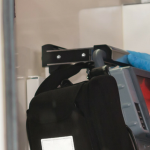
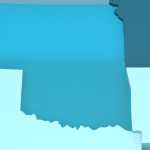
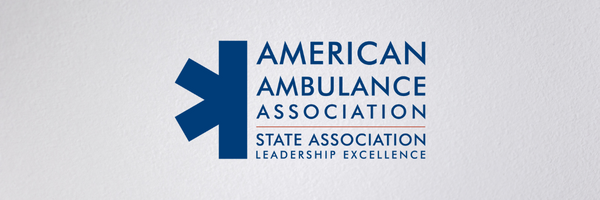

 Niagara Falls USA Convention Center
Niagara Falls USA Convention Center




